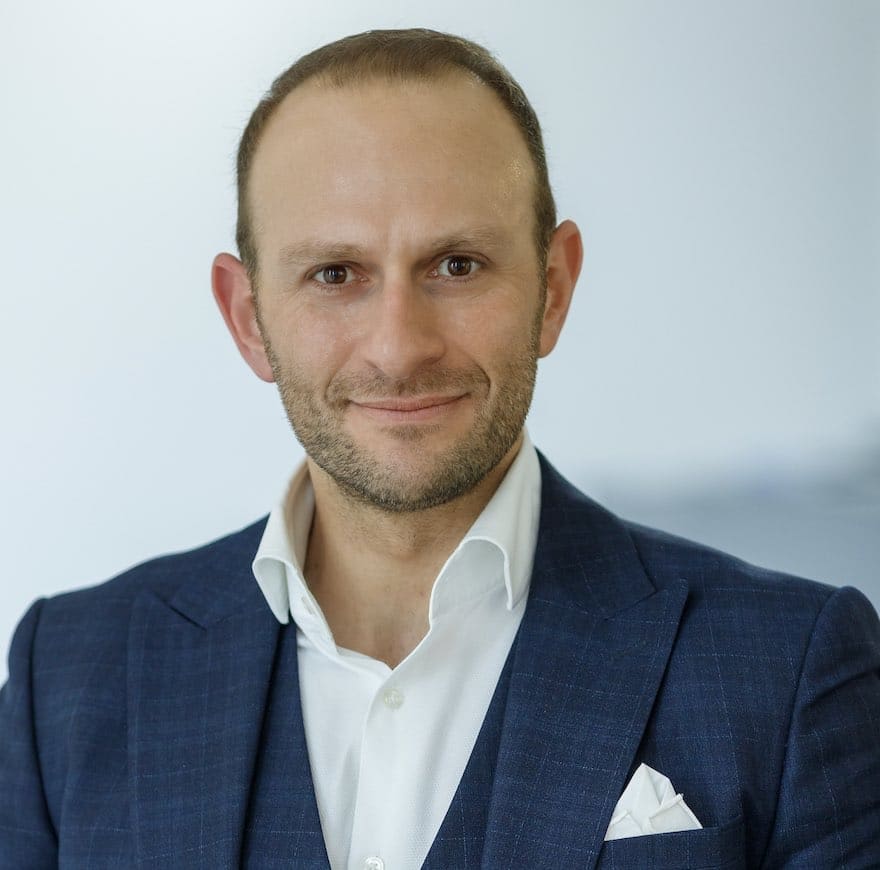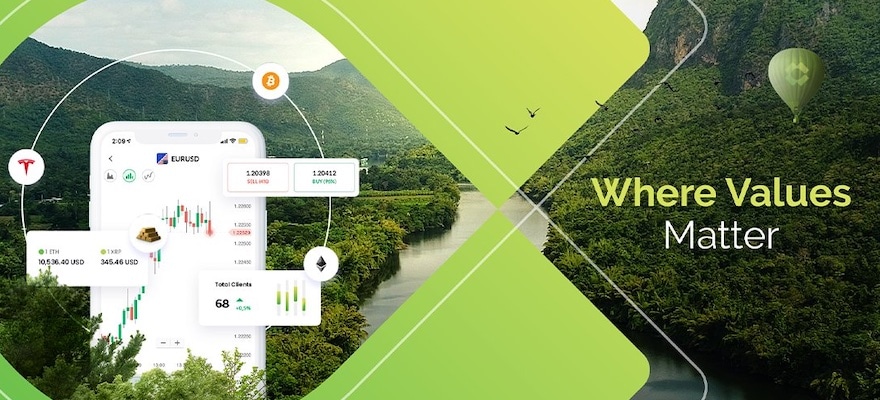This year kicked off on resonating change with the arrival of Panikos Teklos at the helm of Fintech Group ICC. After 5 years as Risk & Wealth Advisory Partner at Deloitte, he has joined the Group as CEO in what he calls “a large-scale transformational project” which aims to transform it into a Multi-Asset brokerage group. Guided by a modern vision and values, he plans to make the ICC a financial powerhouse with the launch of Axiance, its new online brokerage brand.
In a conversation with him we found out about his plans for Axiance and beyond, the driving forces in the industry, and the steps being taken to emerge as a modern-day brokerage.

Panikos Teklos, CEO, Axiance
What are your plans for the Group?
I have set my aims on bringing a certain level and culture of institutionalization and governance to the Group. These are extremely important things and pillars that tie very well with the core values of integrity and transparency that we want to represent.
We would look to globalise our offering, develop trend-setting initiatives and offer best of breed solutions and products to our clientele, both retail and professional clients.
Given the “SPAC-frenzy” and numerous listing that has been taking place over the last two years, many have asked me whether I would see this Group being listed at some point in the future.
I said that a successful listing is certainly an amazing achievement and is certainly one of our ambitions.
I am confident that the level of skills of our people and the institutionalization of the Group will make it a financial powerhouse. It is a journey that will rely on very core fundamental principles of, to put it plainly, “doing things right”, making sure that we build super solid foundations.
Your brokerage arm was launched this summer, what should online traders expect from this new entrant?
The launch of our brokerage platform Axiance has opened up new ways to demonstrate our new vision and philosophy. Axiance is an ecosystem where technology and performance coexist with a human approach to doing business, with initiatives that engage clients in constructive and enriching ways.
For example, we aim to write great articles and provide insightful analysis! We are also adding new asset classes and plan to launch exciting new products shortly in our drive towards an institutionalization of our services.
What is the strategy behind it?
Our strategy is to shift away from the CFD market into a more diversified product range which encapsulates the essence of a true multi asset model, because I genuinely think that such diversified product offering caters better to the needs and behavioural changes of not just retail investors but also paves the way towards the professional and institutional space.
This allows you to actually benefit out and trade the full range of instruments, be it direct stocks, direct bonds, ETFs, fractional shares, access to IPO offerings, mutual funds, private equity funds, hedge funds, then obviously CFDs and perhaps even other derivatives and Non-Financial Tokens (NFTs).
In any case, your structure should be built in such a way that you can actually manage properly both the risk and the regulatory requirements via the offering of such products.
This seems to be a necessary transition for many financial service providers. What other transformations are you planning?
The change we are implementing within the Group also touches upon our mentality. We feel that it is time to become a broker with a strong footing in responsible and sustainable finance, where values matter.
The market is looking at increasingly selective investors, with younger profiles, people sensitive to sustainability factors and ESG, people like us.
Also, my banking experience confers a certain pedigree for financial services and I do not just plan to enhance the level of relationships we have with regional or international banks but also expand our footprint with regional and global electronic money institutions and payment service providers and ensure that they have a credible, high-calibre institution in front of them.
What is the key fundamental value in your plans?
We feel that transparency is the defining factor for those that wish to work with and for clients and achieve longevity. Our ambition is that we have such a footprint that we will establish ourselves as a leader in the market and we can only achieve that through transparency.
Is diversifying your investment products enough to remain a competitive broker?
No, you need institutional change for better proactivity, versatility and agility in responding to a continuously evolving market environment and trends while complying with regulatory changes.
What I find to be a great opportunity here, it comes with what I call a large scale transformational project, these types of projects have to start from the very core to get solid foundations.
It has to do with making sure that the right processes, operating model, technological infrastructure and above all proper governance are implemented.
Once the foundations are established and are rock-solid, innovation, market instinct and credible market intelligence which identifies the evolving needs of clients are needed to remain on top of competition.
What are the main challenges in working in asset management and brokerage?
The main challenge is a consequence of the really particular circumstances we have experienced over the last 12-13 years, the global financial crisis of 2008 and the swings that followed.,
Both the management fees that have been charged over the years, in addition to certain permissible commissions, have been dragged down and extremely squeezed over the last few years in the financial products as well as in the investment services.
At the same time, another challenge arises with new actors in the likes of electronic money institutions such as Revolut. They started to offer very similar brokerage-like services almost on zero commission, which squeezes out even more the margin on these services.
But I think the biggest challenge is structure and governance. Perhaps the lack of institutionalization in different aspects.
How has the regulatory framework evolved in the financial services sector?
Undoubtedly, the most impactful Regulation we have seen so far, at least in Europe, is MiFID II. One of its fundamental themes (Directive on Markets in Financial Instruments) was built on enhancing investor protection through transparency and disclosure.
It required a lot of investment and training from financial services providers to be able to fully grasp and implement it.
By complying with it, and having advised numerous financial institutions on the Directive, as well as having been part of the consultations on it, I believe it gives us a great advantage in making sure that all new requirements in transparency, business conduct and compliance will be met.
Regulators have become very harsh on CFD brokers, in particular when such outfits work with retail investors, and the entire universe is pro investor protection.
The level you are required to maintain for having the right processes and organisational structures is extremely high and it has been very challenging for many brokers.
Lastly, another big challenge is the lack of consistency between regulatory regimes across different jurisdictions and the non-uniformity in the approach of marketing one’s services for global organisations.
What is your outlook on the online retail trading industry for the next five years?
Overall, I am quite optimistic about this sector, both in terms of revenue and in terms of ethos; retail clients are gaining knowledge and sophistication, and the ability to democratize a market offering that was privileged to large institutional clients provides an empowerment that is very well embraced by retail clients as market research shows.
Having said that, companies like ours have realized that nowadays it takes more than just innovation, compliance and services to stand out, you need to care about things that go beyond the boardroom or the platform.
This is why we support our communities, we are involved in reforestation projects and sponsor zero-carbon athletes and events like two-time Olympian Antri Christoforou and Javier Sanz’s yacht in the 2021 Copa del Rey de Vela regatta, and we’re only getting started.
















